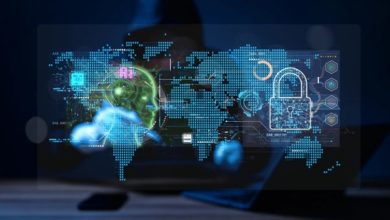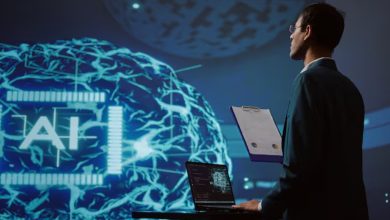Over 70% of APAC and Japan Organisations Report AI’s Impact on Cybersecurity: Rackspace Tech Survey

New global cybersecurity research by Rackspace Technology (NASDAQ: RXT), a leading end-to-end, multi-cloud technology solutions company, conducted in association with Microsoft, finds that artificial intelligence (AI) is playing an increasingly critical role in driving organisations’ security postures and their need for investment in cybersecurity. When asked how AI is influencing their organisation’s security posture, 72% of Asia Pacific and Japan (APJ) survey respondents said that AI has increased their need for cybersecurity, resulting in stricter security measures on data storage and access (62%), greater attention to the exposure of sensitive data (53%) and stronger classification frameworks and guidelines (52%).
At the same time, survey respondents say that AI-enabled technologies have become a critical tool in the security arsenal across a number of cyber investment areas, including identity access management (95%), Application Security (88%), Cloud Native Security (87%) and Detection and Response (85%) 89% also say their organizations have a formal policy in place on AI governance and security in place, though only 37% say that the level of awareness and understanding among employees of their policy is “great,” vs. 49% who characterize it as “fair.”
“As AI has emerged as an increasingly important area of focus for organizations of all sizes, it presents both challenges and opportunities for security teams,” said Jeff DeVerter, Chief Technology Evangelist, Rackspace Technology. “We are seeing an increased focus on AI data governance and a heightened focus on cloud-native security as organizations’ infrastructures become more distributed and the IT perimeter becomes blurred. But we are also seeing more companies leveraging AI to fight attackers and stay ahead of the curve while prioritizing training of personnel to help them better understand and avoid vulnerabilities.”
” Cybersecurity was listed as the top concern for the C-suite in Asia Pacific which shows the significance of it among other critical business challenges. In the ever-evolving landscape of cybersecurity, artificial intelligence has emerged as both a potential threat vector and a powerful tool of resilience. As organisations in APJ prioritise investment in cloud-native security, they need to navigate the dual role of AI, embracing it as a critical asset in their security arsenal while acknowledging the imperative defend against malicious threat actors with external expertise,” said Sandeep Bhargava, SVP, of Global Services and Solutions, Public Cloud Business Unit, Rackspace Technology.
Cyber Budgets Rise, With Cloud Architecture Attacks a Leading Concern
66% of survey respondents say they have increased their cyber budget over the past year, while only 3% said they have made cuts. Meanwhile, 32% of those who have increased say they have raised their cybersecurity budget by 14% or more. The biggest areas of investment are cloud-native security (59%), data security (50%), and application security (52%). The top factor that drives the organisation’s investment in cybersecurity is the fear of breach or data loss, followed by mitigating potential risks and threats to the business.
One major factor driving the increase is the rise in concern over cloud architecture attacks, which 63% of respondents identify as their biggest threat. It is also the area organisations feel the least prepared to address themselves, with 54% relying on a partner to deliver cloud-native security.
Continuing Talent Crunch Leads to More Partnering
Securing and retaining cybersecurity talent remains a major organizational hurdle, with survey respondents identifying a shortage of skilled workers as their leading cyber challenge. In an ultra-competitive hiring environment with high employee turnover, rather than bringing on additional internal resources, companies are more reliant than ever on outside partners. 49% of APJ respondents cite engaging with cybersecurity services partners for consultation or support as a top three priority, with a lack of internal expertise being the leading cause.
“As cybersecurity has become increasingly complex, with workloads and data deployed across multiple platforms, it has become much more difficult to maintain a ‘go it alone’ mentality,” said D K Sinha, President, Public Cloud for Rackspace Technology. “Fortunately, there is a plethora of great cloud security tools available to organizations and partner networks that can help fill in knowledge gaps.”
Stronger C-Suite and Board Engagement
Engagement of C-suites and boards with the array of cyber threats they are facing is having a positive impact on visibility, buy-in, and collaboration. According to the survey, cybersecurity remains the top concern for the C-suite (65%) – above issues such as sustainability (52%), interest rates (47%), retaining/hiring employees (42%), and supply chain/logistics management (37%). 78% of respondents say the level of concern for cybersecurity has increased in their C-suite over the pa9% also say that better collaboration between the security team and the C-suite has effectively reduced the cyber skills gap. The greatest cybersecurity challenge organisations in APJ are facing is a shortage of workers with cybersecurity skills.




